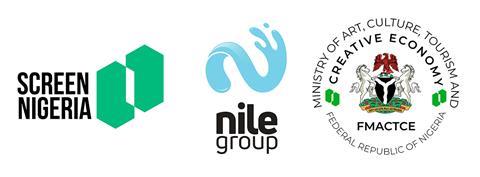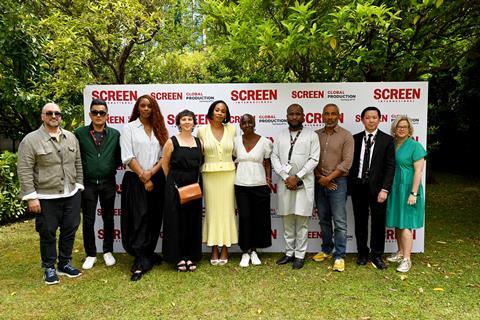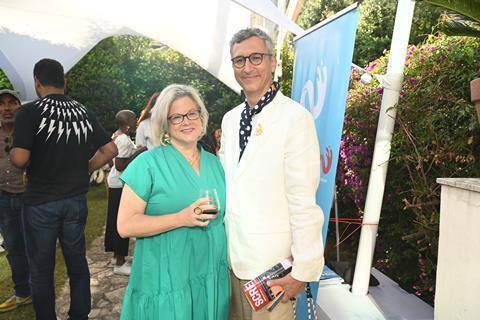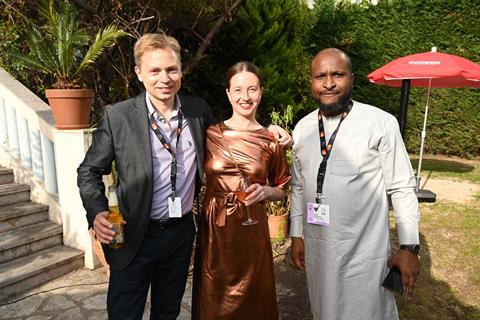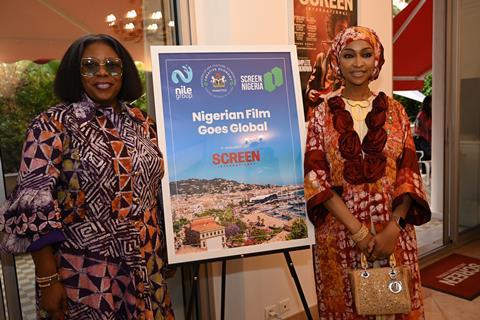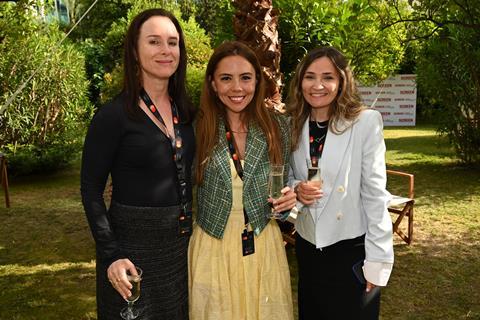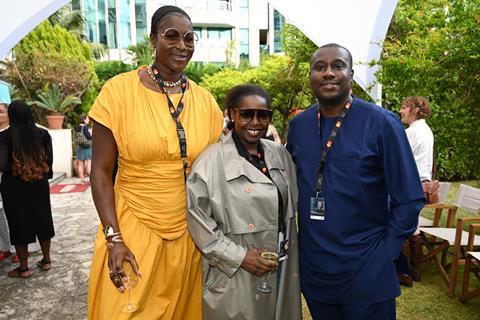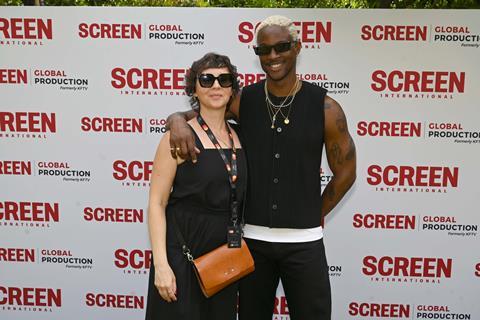Key figures from the Nigerian industry and from the Nigerian cinema diaspora gathered for a Screen International roundtable in Cannes, hosted by Nile Media Entertainment Group.
Titled ‘Nigerian cinema goes global’, the discussion was organised to celebrate the selection of Akinola Davies Jr’s My Father’s Shadow in Un Certain Regard, the first Nigerian film in Cannes, but also to address what can be done to boost Nigerian filmmaking further both at home and abroad. One key talking point was how to avoid defining Nigerian cinema exclusively through the Nollywood lens.
Nile Entertainment founder Moses Babatope told fellow panellists it is still not straightforward for international festival favourites like My Father’s Shadow to break through with Nigerian audiences.
“I’ve been at the forefront of wanting to try something different, do something new and to challenge the status quo,” said the pioneering exhibitor, producer and distributor. “When you stack it against the business realities, we do not have enough screens. [With] the cost of running the cinema, you cannot afford to make these bets and try to experiment as much as you want to.”
Marketing costs for Nigerian releases remain “very high”, ticket paying audiences are not adventurous in what they will watch. The result is that arthouse and indie movies are still struggling for traction. “It is going to take philanthropic and patient funding to cultivate that audience,” said Babatope. “The cinemas right now are about survival. [They] have escaped the pandemic and have sucked up devaluation and the student strikes.”
Filmmaker and former Netflix executive Funa Maduka put a more optimistic gloss on prospects for the Nigerian exhibition sector.
“It’s not to say it’s without challenges but I think we sometimes magnify challenges to the extent where we think it’s impossible.”
Nigeria has a population of more than 230 million, making it the most populous Black country in the world. Its cinema sector still has huge capacity for growth — and there are large amounts of talents still to be tapped.
Babatope, who has produced or exec produced more than 40 Nollywood hits, set up Nile Media last year with the goal of “trying to be innovative about how we approach the opportunities that are very obvious in Nigeria… how to get the best of Nigerian filmmaking and storytelling to the rest of the world.”
Producer Funmbi Ogunbanwo of Fatherland Productions, one of the producers of My Father’s Shadow alongside fellow panellist Rachel Dargavel of Element Pictures, talked of the natural cinematic richness of Nigerian culture.
“Lagos is a whole movie every day, multiple themes, multiple characters. Everything you see represented on screen, there’s a reference point in real life,” said Ogunbanwo. ‘It’s the reality of how we are as a people. When you talk about the cinematography and landscape of Lagos, I always say Lagos is creative chaos. Everything comes at you at once but somehow you find beauty in that.”
Panellists also talked of the “huge untapped richness” in Nigerian diaspora stories from the UK, US, Canada and beyond.
Market breakthrough
Maduka believes Nigerian filmmakers bring “new choices and dramatic decisions into storytelling. It’s about creating a paradigm not based on the patterns we know have been dominated by western media.”
Nigerian films are now breaking through in new markets internationally. As several panellists noted, Nigerian comedian and star Mr Macaroni was mobbed by fans at Red Sea International Festival in Saudi Arabia when The Legend Of The Vagabond Queen Of Lagos and Freedom Way screened there in 2024.
Moderator Wendy Mitchell asked panellists for a suggestion of what needs to be done to turbo charge the industry: more studio space, more local investment, a tax credit?
“Funding and distribution,” said Ogunbanwo. “In the same way we have had [sales agent] The Match Factory [back] My Father’s Shadow, I’d love to see Nile [get] a script, put money in it and say we’re going to be in this — that’s the challenge.”
“Challenge taken,” responded Nile boss Babatope.
